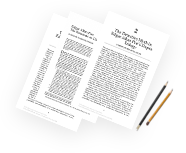Module 1 Discussion
The Psychiatric Assessment & Diagnosis
After studying Module 1: Lecture Materials & Resources, discuss the following:
- Define psychiatric interview and its importance to the psychiatric nurse practitioner’s role.
- Compare the phases and critical tasks involved in performing the initial interview.
- Explain the on going process of the psychiatric assessment.
Expert Solution Preview
Introduction:
In this module, we will be discussing the psychiatric assessment and diagnosis. The psychiatric interview plays a crucial role in the role of a psychiatric nurse practitioner. We will explore its definition, significance, as well as the phases and critical tasks involved in performing the initial interview. Additionally, we will delve into the ongoing process of the psychiatric assessment.
Question 1: Define the psychiatric interview and its importance to the psychiatric nurse practitioner’s role.
The psychiatric interview is a structured conversation between the psychiatric nurse practitioner and the patient, aimed at gathering information, assessing mental health, and establishing a therapeutic relationship. It is a vital tool for psychiatric nurse practitioners as it serves multiple purposes.
Firstly, the psychiatric interview enables the nurse practitioner to obtain a comprehensive understanding of the patient’s current mental state, including their thoughts, emotions, behaviors, and psychosocial history. Through active listening and effective communication, the nurse practitioner can gather relevant information and identify specific symptoms or patterns that may aid in formulating an accurate diagnosis.
Secondly, by building a therapeutic alliance with the patient, the psychiatric interview creates a safe and supportive environment for the patient to express their concerns, fears, and experiences. This process fosters trust and promotes open communication, enabling the nurse practitioner to gain insight into the patient’s subjective experience and perspectives.
Lastly, the psychiatric interview allows the nurse practitioner to assess potential risks and develop a holistic care plan tailored to the patient’s unique needs. By exploring various aspects of the patient’s life, such as their social support system, living conditions, and coping mechanisms, the nurse practitioner can provide appropriate interventions that encompass both pharmacological and non-pharmacological approaches.
In summary, the psychiatric interview is of utmost importance to the psychiatric nurse practitioner’s role as it facilitates comprehensive assessment, therapeutic alliance building, and individualized treatment planning.
Question 2: Compare the phases and critical tasks involved in performing the initial interview.
The initial interview can be divided into four distinct phases: preparation, introduction, information gathering, and conclusion.
During the preparation phase, the psychiatric nurse practitioner establishes an environment conducive to the interview. This involves ensuring privacy, arranging for adequate time, and gathering relevant assessment tools or documents.
In the introduction phase, the nurse practitioner sets the tone for the interview by introducing themselves, explaining the purpose of the interview, and establishing rapport with the patient. Building trust and establishing a therapeutic alliance is essential during this phase, as it lays the foundation for open communication.
The information gathering phase is the core of the initial interview. Here, the nurse practitioner asks open-ended and specific questions to gather comprehensive information about the patient’s psychiatric history, current symptoms, psychosocial stressors, and any potential risk factors. Active listening skills, empathy, and cultural sensitivity are crucial during this phase to ensure accurate and holistic assessment.
Lastly, the conclusion phase involves summarizing the key points discussed during the interview, addressing any immediate concerns, and collaboratively developing a plan for further evaluation or treatment. This phase also presents an opportunity for the nurse practitioner to answer any questions or concerns the patient may have, ensuring they feel heard and included in their care.
Critical tasks within each phase include establishing rapport, actively listening, using appropriate therapeutic communication techniques, assessing mood and affect, exploring thoughts and perceptions, and conducting a risk assessment. These tasks are integral to the accurate assessment, diagnosis, and formulation of an appropriate care plan.
Question 3: Explain the ongoing process of the psychiatric assessment.
The psychiatric assessment is an ongoing process that extends beyond the initial interview. It involves continuous monitoring, reassessment, and evaluation of the patient’s mental health status.
During the ongoing process, the psychiatric nurse practitioner regularly engages in therapeutic conversations with the patient, exploring any changes in symptoms, treatment response, and overall well-being. This ongoing assessment allows for the identification of any emerging concerns or the need for modifications in the existing care plan.
Furthermore, the psychiatric assessment involves collaborating with the patient’s support system, such as family members or other healthcare professionals, to gain a comprehensive understanding of the patient’s overall functioning and treatment progress. This multidimensional approach ensures a holistic assessment that considers the biological, psychological, and social aspects of the patient’s mental health.
In addition to regular conversations, the nurse practitioner may also utilize standardized assessment tools or rating scales to measure symptom severity, treatment response, and functional impairment. These tools provide objective data that supplements the subjective information gathered through therapeutic conversations.
Ultimately, the ongoing process of the psychiatric assessment allows the nurse practitioner to continuously evaluate the effectiveness of the treatment plan, make adjustments when necessary, and engage in collaborative decision-making with the patient to promote their overall well-being and recovery.
Conclusion:
In Module 1, we explored the psychiatric interview and its importance in the psychiatric nurse practitioner’s role. We discussed the phases of the initial interview and the critical tasks involved in each phase. Furthermore, we examined the ongoing process of the psychiatric assessment, emphasizing the importance of continuous monitoring, reassessment, and collaboration with the patient and their support system. By understanding and implementing these concepts, psychiatric nurse practitioners can effectively assess, diagnose, and provide holistic care to individuals with mental health concerns.




